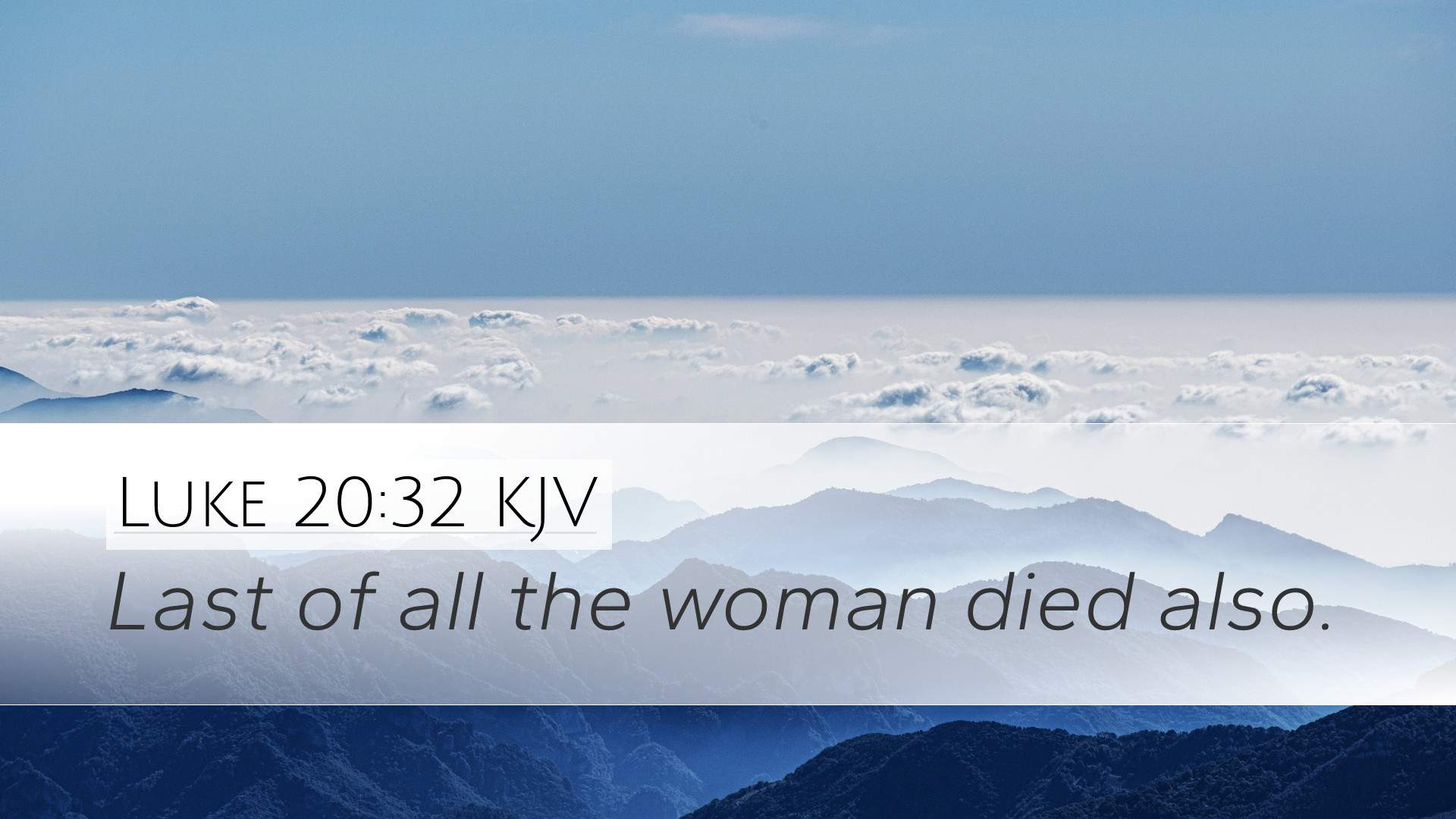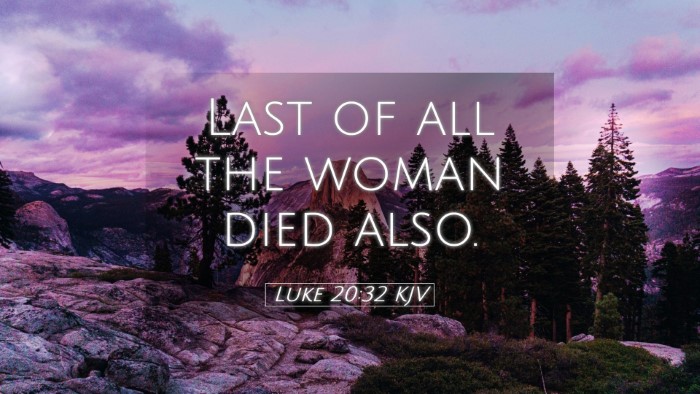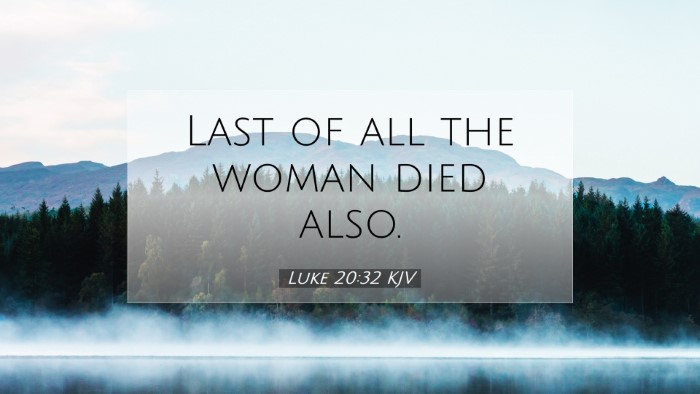Commentary on Luke 20:32
In Luke 20:32, we encounter a critical moment in the dialogue between Jesus and the Sadducees, a group known for their denial of the resurrection. This verse reads: "And the third took her; and in like manner the seven also: and they left no children, and died." This passage carries deep implications about life after death, the nature of the resurrection, and the character of God’s covenant with His people. The following commentary synthesizes insights from notable public domain theologians, aiming to provide clarity and depth for pastors, students, theologians, and Bible scholars alike.
Contextual Analysis
The context of Luke 20 is essential for understanding this verse. The Sadducees approached Jesus with a question designed to mock the idea of resurrection by presenting a convoluted scenario about a woman who marries seven brothers sequentially. The premise is absurd from their perspective, as they intend to demonstrate that resurrection leads to an insurmountable contradiction. They lever their question to highlight what they perceive as the absurdity of belief in an afterlife.
Insights from Matthew Henry
Matthew Henry emphasizes the folly of the Sadducees’ reasoning. He notes that they fail to see the power of God and the glory of the resurrection. Henry articulates that the Sadducees’ question comes from an ignorance of the Scriptures and the authority of God's power. He points out that Jesus will subsequently address this by revealing the nature of existence in the resurrection, countering their challenge by demonstrating that in the resurrection, earthly institutions will be rendered irrelevant compared to the heavenly realities.
Insights from Albert Barnes
Albert Barnes provides a deeper exegetical perspective, noting how the Sadducees’ use of the leverate marriage law (Deuteronomy 25:5-10) to frame their argument illustrates their misunderstanding of God's laws and the eternal purposes therein. Barnes asserts that the Sadducees failed to recognize the types and shadows present in marital relationships on earth, which ultimately point to the greater truths of the divine covenant. He also emphasizes that Christ's response would clarify that relationships in heaven are fundamentally different from those on earth.
Insights from Adam Clarke
Adam Clarke delves into a more philosophical angle, discussing resurrection and the resurrection life that it promises. He suggests that the very argument presented by the Sadducees regarding the woman and her husbands highlights their limitation in understanding divine order. Clarke points out that resurrection implies a transformed existence, where the former earthly bonds and societal structures do not hold the same weight. Instead, believers in the resurrection will be united not in familiar earthly ties but in a new order established by God, exemplifying His ultimate authority and power over life and death.
Theological Implications
This verse prompts significant theological reflection:
- Nature of Resurrection: The Sadducees' question leads to a robust discussion on the nature of life after death. The implications of their question reveal a misunderstanding of spiritual sustenance versus earthly ties.
- Divine Authority: Through Jesus' response, a clear message emerges: God's authority supersedes earthly concepts of marriage and lineage, fundamentally reshaping our understanding of relationships in the eternal state.
- God's Faithfulness: The failure of the Sadducees to see that God is a God of the living, not the dead, affirms the promises He has made to His people. This offers assurance of His faithfulness in resurrection and eternal life.
Practical Applications for Ministry
For pastors and theologians, this passage serves as a vital teaching tool in several respects:
- Pastoral Counseling: The passage could be used in addressing concerns about death and the afterlife, providing hope and clarity that believers have a future beyond earthly ties.
- Teaching on Resurrection: It can deepen a congregation's understanding of resurrection and what it means to live in light of eternity, encouraging a focus beyond earthly concerns.
- Engaging with Doubt: The response of Jesus provides a model for engaging with challenging questions regarding faith, showcasing the importance of a grounded understanding of Scripture.
Conclusion
In exploring Luke 20:32 through the combined insights of Matthew Henry, Albert Barnes, and Adam Clarke, a rich tapestry of understanding emerges. This verse serves not only as a rebuttal to the Sadducees but also as a profound declaration of the truth of resurrection and God's sovereign authority over life. It is a reminder that our understanding of relationships and life beyond this world must be informed by the realities of God's Kingdom.


